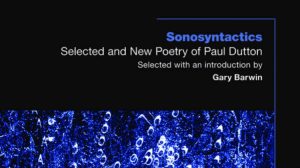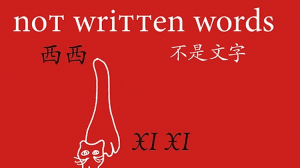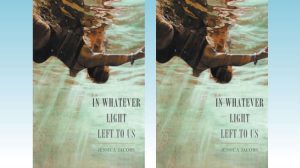Birnam Wood / El Bosque de Birnam: Antología poética. A Bilingual Edition with English translation by Hélène Cardona / Salmon Poetry / 94 pages / 2018
Poet, writer, and translator José Manuel Cardona (1928-2018) was born in Ibiza, Spain. He held PhDs in literature and humanities and worked for the United Nations for most of his life. His poetry collection, El Bosque de Birnam: Antología poética, was published by Consell Insular d’Eivissa, 2007, as a tribute by the government of Ibiza. His daughter, Hélène Cardona, an actor, editor, author, and translator, translated El Bosque de Birnam into the present volume, Birnam Wood, published by Salmon Poetry.
 The Shakespearean ring to the title, Birnam Wood, refers, of course, to Macbeth for the political context. Cardona was a poet of the diaspora, and part of the collection has poems dedicated to his native island of Ibiza as well as others written abroad.
The Shakespearean ring to the title, Birnam Wood, refers, of course, to Macbeth for the political context. Cardona was a poet of the diaspora, and part of the collection has poems dedicated to his native island of Ibiza as well as others written abroad.
The collection begins with a line from Shelley’s Prometheus Unbound: “Language is a perpetual orphic song.” This was Shelley’s philosophy of language — an idea that was so revolutionary that it established a poetry that was highly metaphorical and motivated by a sense of mystery as it attempts to express the inexpressible. The reference to Orpheus is mirrored in the collective title of four poems that appear in the third section of this volume, “Four Orphic Sonnets,” but the idea conveyed by this orphic song pervades the collection as a whole.
The poems in this book were written over many years from the series of poems addressed to Circe, which date from 1959 to “The Spell” which was composed in 1995.
José Manuel Cardona was one of the many Spanish writers and artists who was exiled by the Franco government from his native land. His poems reflect those of a man who yearns for his homeland and this longing is framed through the twin portals of metamorphosis and myth, chiefly seen in the series of poems addressed to the legendary sorceress Circe, whose story is related in Books X and XII of Homer’s Odyssey
In the sequence of poems addressed to Circe, the hand becomes a recurring image. Hands, which are the most frequently symbolised part of the human body, give blessings, are expressive, and offer strength, power, and protection. They can also signify generosity, hospitality and a sense of stability. We reach out to others with our hands in love.
In “Poem to Circe IV” Cardona writes about his love of amphorae, those beautiful, shapely vessels, that we often see depicted on Greek vases, for the transportation and storage of such exotic items as olive oil, grapes, and wine:
Under this sea Phoenician amphorae
Sleep their languid female curves.
Do you know amphorae? Have you
Seen their figure, their elegance?
Beneath their waters their whiteness
Laughs like spotless marble, indolence
Wakens love, they expand.
They’ve slept between sands for centuries.
They are like soft fish that escaped
The potter’s greedy love.
They remind him of a youthful past “sleeping blue beneath the waters” to which none of us can ever return.
The second part opens with a poem addressed to his birthplace: “Ibiza.” The word “Ibiza” originally came from the Arabic word “Yabisah” meaning “land” or “landward.”
This is the name I bear in the lines of my hand
the name that tells a legend
and writes the story of my twenty five years.
It is, in his words, “a name, a word, a blaze, / a little geography” and in it we catch the aroma of basil and rosemary, the scent of pomegranate trees and the fragrance of orange blossoms. We see in the figures of palm trees, the shapely contours of beautiful women and hear the sound of the sea. All the senses are brought into play in this wonderful evocation of a youthful paradise.
Cardona writes in the best tradition of the Generation of 1927, poets and writers such as Federico García Lorca, Rafael Alberti, Luis Cernuda and Pedro Salinas, who looked to wider European movements to embark on a more conscious use of metaphor and symbolic imagery for the purpose of conveying inner personal experience. Many of the poems in the latter part of the collection pay homage to writers and artists roughly contemporary with Cardona such as the poets Pablo García Baena, Mariano Mariano Villangómez, and Juan Bernier and the painters Juan Alcade, Miguel del Moral, and Pedro Bueno. Like Cardona, some of the writers he pays homage to, such as Luis Cernuda, lived most of their lives in exile. The poems in this section are of an elegiac nature but in the final poem, “Inhabited Elegy,” we find that the great heroes of myth are still with us and speak to us today.
Reading Cardona’s poems put me in mind of Seferis and Elytis, not just because they reference Greek mythology and are infused with coastal imagery and the power of the sea, but also because of the beautiful lyricism of the writing both in the original and in the highly accomplished translation into English. They also remind me of Neruda because of the universality of his language and the way in which he expresses his wonder and astonishment about everything that is beautiful and sensual in the world.
The cover art by the contemporary abstract landscape painter Jacquie Gouveia is the perfect complement to Cardona’s poetry. In her artistic statement, Gouveia says that her paintings reflect the overall essence of landscapes that she either sees or imagines. By keeping the composition simple she focuses on balancing colors, values and texture. The beauty and emotion are in the simplicity. The landscapes in Cardona’s poetry are also imbued with beauty and emotion. Highly recommended.




Leave a Reply